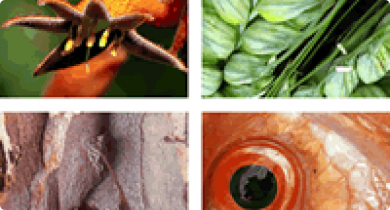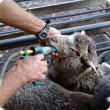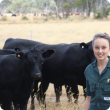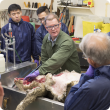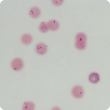Biosecurity
Biosecurity is fundamental for safeguarding our valuable agricultural resources against the threat and impacts of pests, weeds and diseases (pests).
Biosecurity is the management of the risk of animal and plant pests and diseases entering, emerging, establishing or spreading in Western Australia, to protect our economy, environment and the community.
To protect Western Australian agricultural industries from pests the Department of Agriculture and Food, Western Australia:
- Works with stakeholders to identify and manage biosecurity risks.
- Develops legislation.
- Establishes import controls.
- Conducts inspections.
- Provides quarantine services as required.
To find out more about what we do to protect agricultural production and export opportunities within the State please search our website.
Filter by search
Filter by topic
- (-) Remove Livestock biosecurity filter Livestock biosecurity
- Livestock & animals (35) Apply Livestock & animals filter
- (-) Remove Livestock species filter Livestock species
- (-) Remove Sheep filter Sheep
- Livestock health & diseases (31) Apply Livestock health & diseases filter
- Pests, weeds & diseases (31) Apply Pests, weeds & diseases filter
- Diseases (31) Apply Diseases filter
- Livestock disease surveillance (30) Apply Livestock disease surveillance filter
- Beef cattle (14) Apply Beef cattle filter
- Livestock management (12) Apply Livestock management filter
- Goats (11) Apply Goats filter
- Dairy cattle (10) Apply Dairy cattle filter
- Management & reproduction (7) Apply Management & reproduction filter
- Pigs (6) Apply Pigs filter
- Horses (6) Apply Horses filter
- Livestock movement & identification (5) Apply Livestock movement & identification filter
- Feeding & nutrition (3) Apply Feeding & nutrition filter
- Emergency animal disease preparedness (3) Apply Emergency animal disease preparedness filter
- Food, export & investment (2) Apply Food, export & investment filter
- Camelids (2) Apply Camelids filter
- Preventing residues (1) Apply Preventing residues filter
- Residues in livestock (1) Apply Residues in livestock filter
- Poultry & birds (1) Apply Poultry & birds filter
- Bees (1) Apply Bees filter
- Chemicals (1) Apply Chemicals filter
- Control methods (1) Apply Control methods filter
- Export services (1) Apply Export services filter

